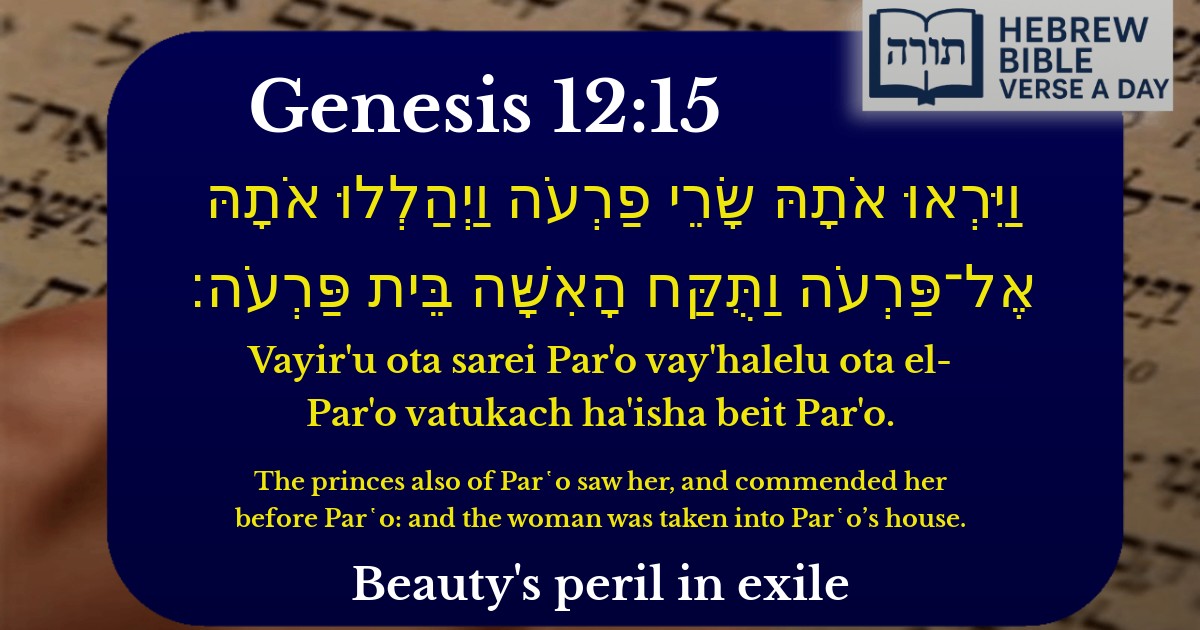Join Our Newsletter To Be Informed When New Videos Are Posted
Join the thousands of fellow Studends who rely on our videos to learn how to read the bible in Hebrew for free!
Hebrew Text
וַיִּרְאוּ אֹתָהּ שָׂרֵי פַרְעֹה וַיְהַלְלוּ אֹתָהּ אֶל־פַּרְעֹה וַתֻּקַּח הָאִשָּׁה בֵּית פַּרְעֹה׃
English Translation
The princes also of Par῾o saw her, and commended her before Par῾o: and the woman was taken into Par῾o’s house.
Transliteration
Vayir'u ota sarei Par'o vay'halelu ota el-Par'o vatukach ha'isha beit Par'o.
Hebrew Leining Text
וַיִּרְא֤וּ אֹתָהּ֙ שָׂרֵ֣י פַרְעֹ֔ה וַיְהַֽלְל֥וּ אֹתָ֖הּ אֶל־פַּרְעֹ֑ה וַתֻּקַּ֥ח הָאִשָּׁ֖ה בֵּ֥ית פַּרְעֹֽה׃
וַיִּרְא֤וּ אֹתָהּ֙ שָׂרֵ֣י פַרְעֹ֔ה וַיְהַֽלְל֥וּ אֹתָ֖הּ אֶל־פַּרְעֹ֑ה וַתֻּקַּ֥ח הָאִשָּׁ֖ה בֵּ֥ית פַּרְעֹֽה׃
🎵 Listen to leining
Parasha Commentary
📚 Talmud Citations
This verse is not quoted in the Talmud.


Context in the Torah
The verse (Bereshit 12:15) describes how Sarah, the wife of Avraham, was taken into Pharaoh's house after the Egyptian princes praised her beauty. This occurs during Avraham and Sarah's descent to Egypt due to famine in Canaan.
Rashi's Explanation
Rashi (Bereshit 12:15) notes that the phrase "וַיְהַלְלוּ אֹתָהּ" ("and they praised her") implies that the princes of Pharaoh were struck by Sarah's extraordinary beauty and immediately brought her to Pharaoh's attention. Rashi also comments that the passive form "וַתֻּקַּח" ("and she was taken") suggests she was taken against her will, emphasizing the gravity of the situation.
Midrashic Insights
Rambam's Perspective
In Moreh Nevuchim (1:54), Rambam discusses the episode as an example of divine intervention. He explains that Avraham's fear of being killed (Bereshit 12:12) was justified, but Hashem ensured Sarah's protection—ultimately leading to Pharaoh releasing her unharmed (Bereshit 12:17-20).
Halachic and Ethical Lessons